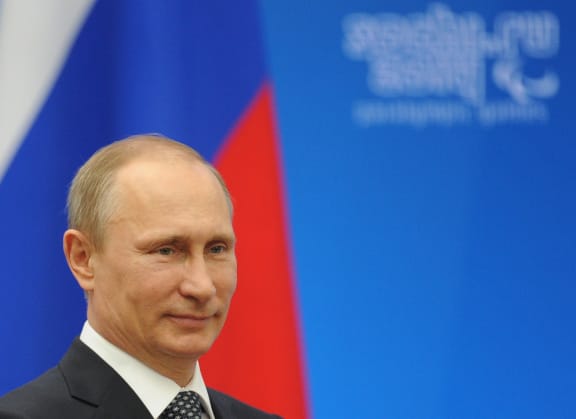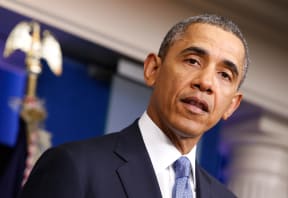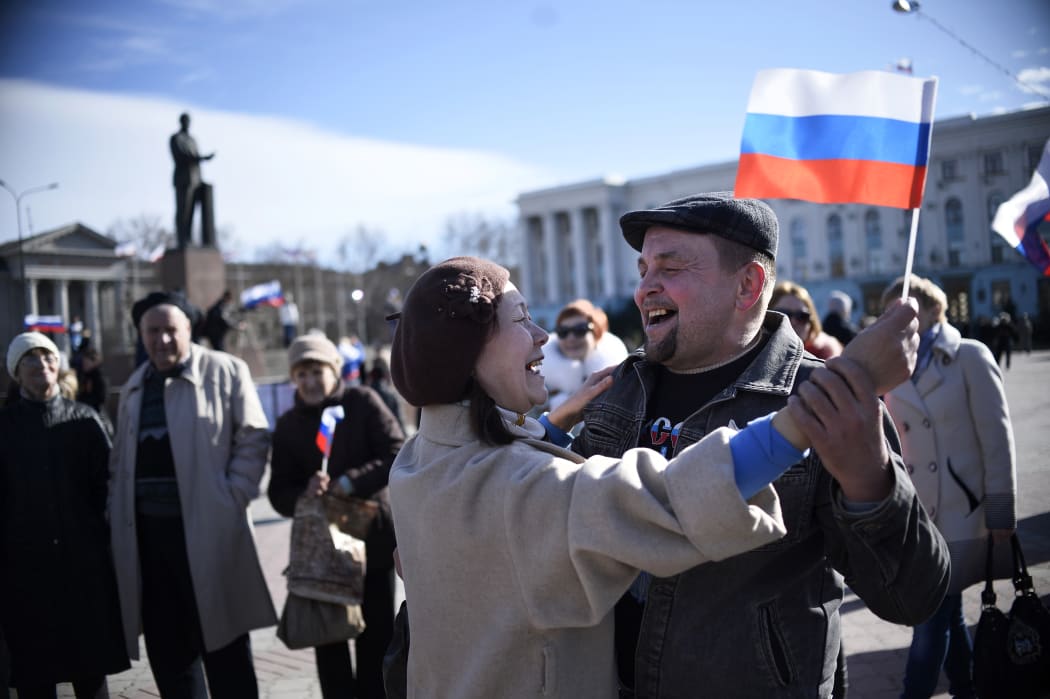Russian President Vladimir Putin has brushed off American and European sanctions by approving a decree recognising Crimea as an independent and sovereign state.

Russian President Vladimir Putin. Photo: AFP
The decree is a technical but highly symbolic move that enables Moscow to accept Crimea without Ukraine's consent.
It comes as the United States and the European Union impose targeted sanctions on key Russian and Ukrainian officials connected with Moscow's intervention in Crimea. Among those targeted are senior Crimean officials, the deputy Russian Prime Minister, MPs and Russian military units deployed in Crimea, including Commanders of the Russian Black Sea Fleet, the BBC reports.
The European Union's foreign policy chief, Catherine Ashton, says those singled out for travel and asset bans are responsible for threatening Ukraine's territorial integrity and independence.
On Sunday, Crimeans voted overwhelmingly to rejoin Russia and Mr Putin insists that the poll fell completely in line with the norms of international law. The Crimean parliament has formally declared independence from Ukraine and applied to join the Russian Federation.
Meanwhile, European Union foreign ministers meeting in Brussels have agreed to impose travel and asset sanctions on 21 officials from Russia and Ukraine.

US President Barack Obama delivers a statement on Ukraine at the White House. Photo: AFP
EU officials say those targeted were responsible for a referendum in Crimea. Pro-Russian forces have been in control of Crimea since late February this year.
In the US, President Barack Obama announced an asset freeze on 11 officials, including Crimea's acting leader Sergei Aksyonov and one of Russia's deputy prime ministers, Dmitry Rogozin.
China has called for restraint, saying a political settlement is the only way to resolve the crisis in Ukraine. On Saturday, China abstained from voting on a United Nations Security Council resolution that said the referendum was illegal.

A man holds a Crimean flag outside the Crimean parliament building in central Simferopol. Photo: AFP
World should welcome move - Gorbachev
The Soviet Union's last leader, Mikhail Gorbachev, says the world should welcome the prospect of Crimea becoming part of Russia because it rectifies an historic mistake from the Soviet era.
Mr Gorbachev says Crimea only ended up in Ukraine because it was transferred from Russia by the then Soviet leader Nikita Khrushchev when both countries were part of the Soviet Union. He says Crimeans were not asked which country they wanted to be a part of.
Ukraine's interim president Oleksandr Turchynov says the results had been "pre-planned by the Kremlin as a formal justification to send in its troops".
About 1.5 million voted in the referendum, which was called by the region's pro-Russian government. It was boycotted by some groups, including the Crimean Tatars and people loyal to Kiev.
On the ballot paper, voters were asked whether they would like Crimea to rejoin Russia. A second question asked whether Ukraine should return to its status under the 1992 constitution, which would give the region much greater autonomy.
NZ says trade links vital
Export New Zealand says this country would have much to lose if trade erodes with Russia because of the Ukraine crisis.
In the past financial year, Russia bought $255 million of New Zealand commodities, particularly agricultural products. New Zealand imported $110 million of Russian products.
Earlier in March, Prime Minister John Key said free-trade agreement talks with Russia were on hold, while Foreign Affairs Minister Murray McCully said New Zealand would not recognise the result of the Crimea referendum.
Export New Zealand executive director Catherine Beard said agricultural products attract big tariffs, and a free-trade agreement would remove that obstacle.

